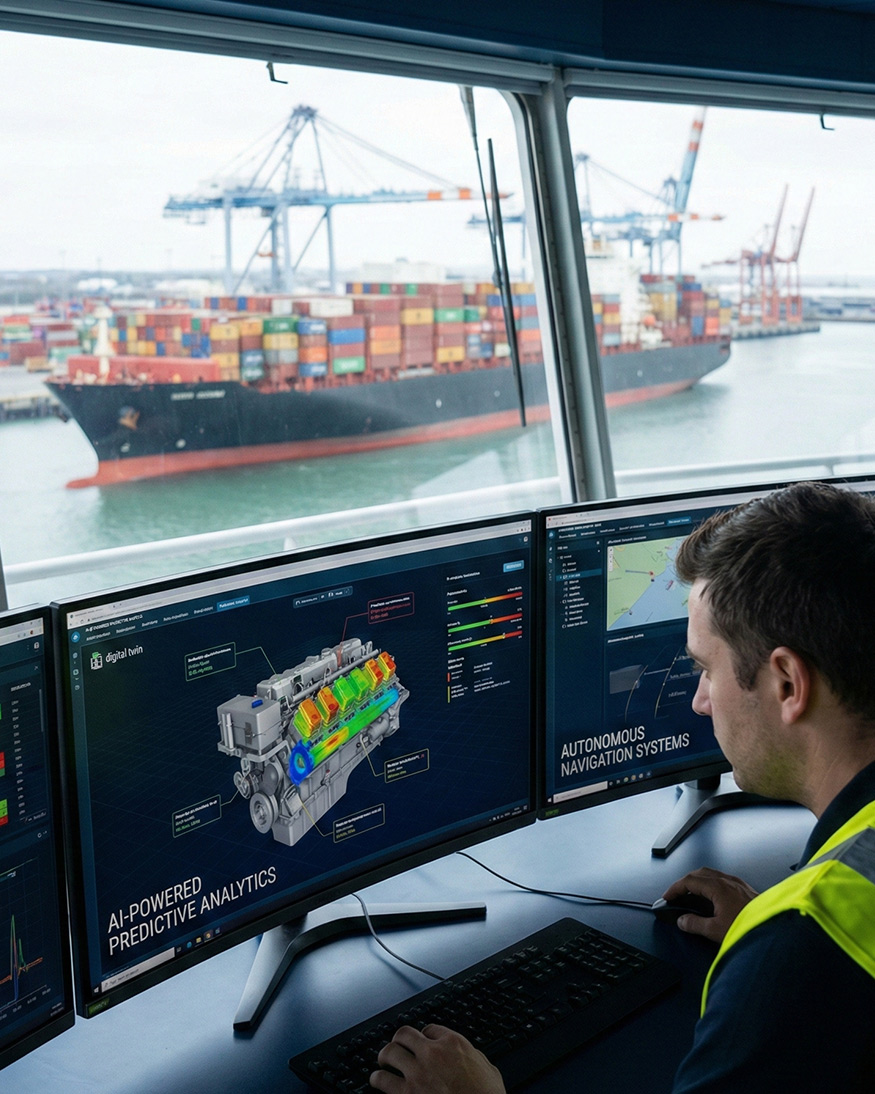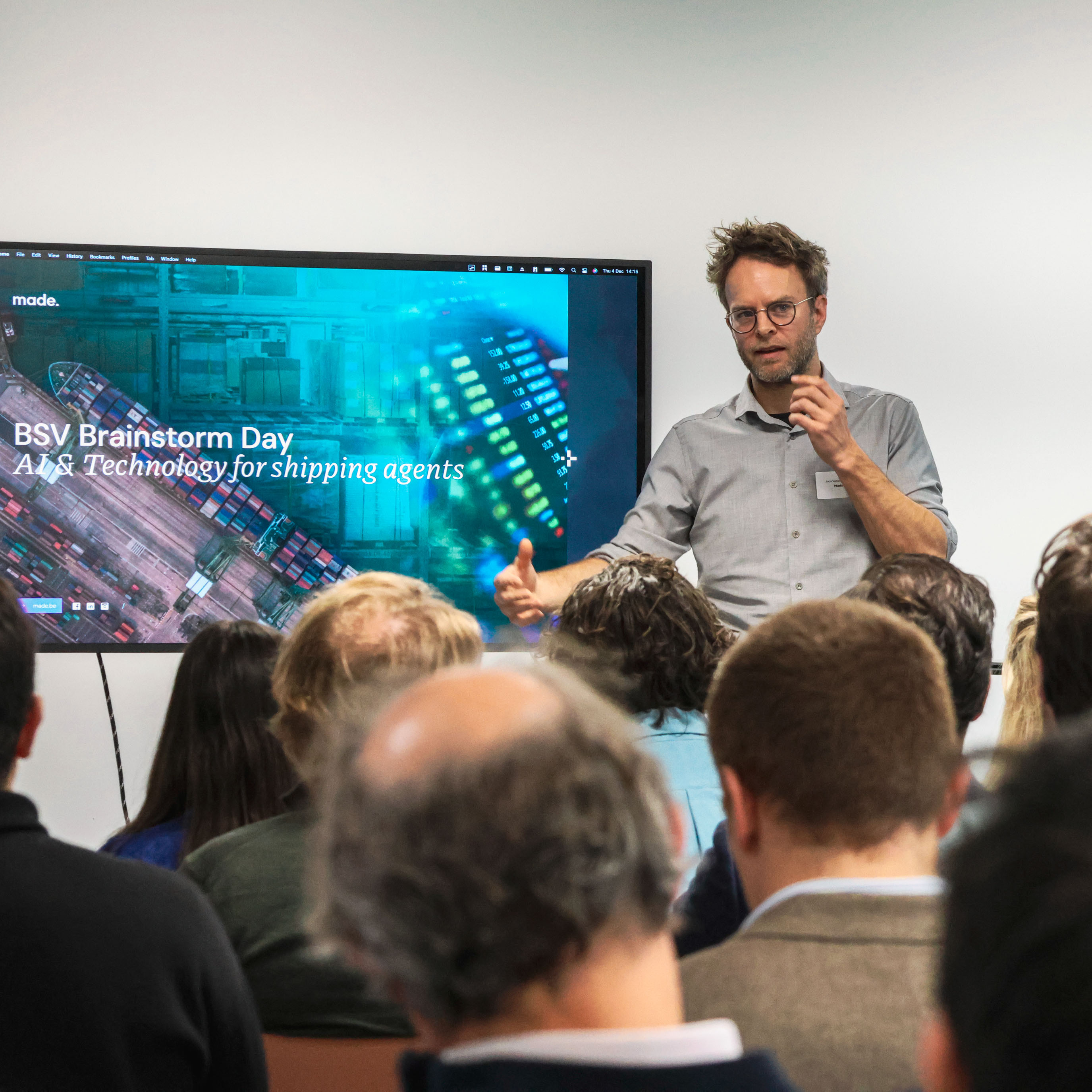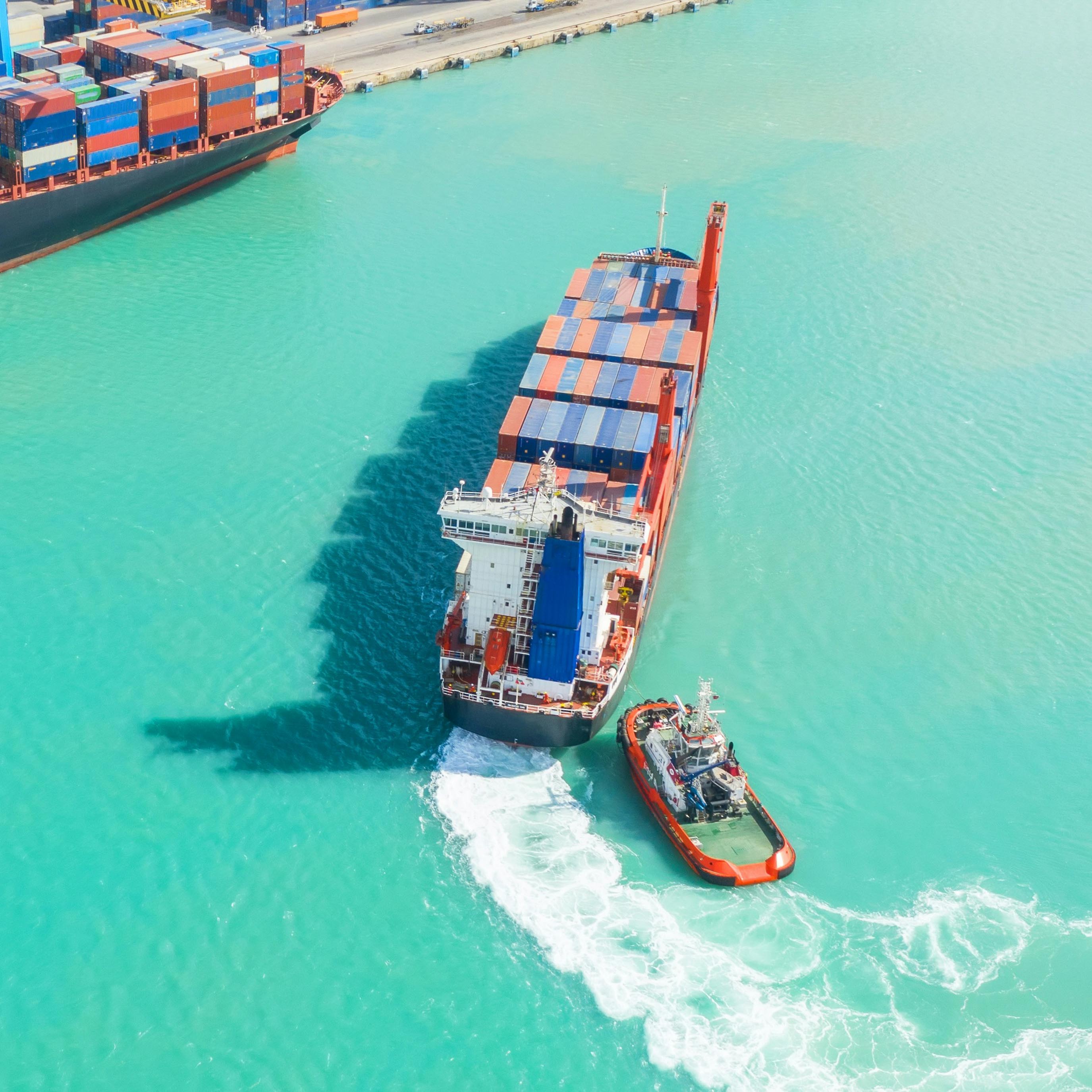London International Shipping Week 2025
Antwerp, Belgium - October 8th, 2025
By Joos Van den Bergh, Director Maritime & Logistics, Made
The London International Shipping Week (LISW)? Always a good barometer for maritime innovation. This year was no different. Burning topics like decarbonization, vessel autonomy and digital transformation stood out, and brought me to the clear conclusion that those who master their data today, will own the sea tomorrow.
Let's dive in!



Demand for data will only grow
During LISW25, you obviously couldn’t escape the topic of decarbonization. Not least due to the upcoming MEPC session later this month where new measures of the IMO’s ‘Net-Zero Framework’ are expected to be adopted in MARPOL.
Amongst others, these measures include a new fuel standard for ships and a global pricing mechanism for emissions.
Measures like these require the industry to be more transparent in terms of reporting. Simultaneously, overall fleet performance will need to be more verifiable than ever before.
Hence, data is what you need.
Beyond the report
However, data will proof to be valuable for more than reporting purposes alone. It's what Odfjell’s Chief Sustainability Officer, Øistein Jensen, argued during Inmarsat’s excellent Strictly Decarb event: in today's maritime environment, operational excellence is the most powerful method to reduce carbon emissions quickly.
And we could not agree more. Keeping a close eye on what is emitted (and why), comparing against benchmarks, applying both historical and predictive insights, leveraging weather data… are all effective methods for cutting emissions fast and effectively.
During a later conversation I had the same evening, a large fleet operator confirmed this approach, telling me they reduced emissions with 10–15% easily by doing exactly that: measure and act.
Yet again, data is key for success.
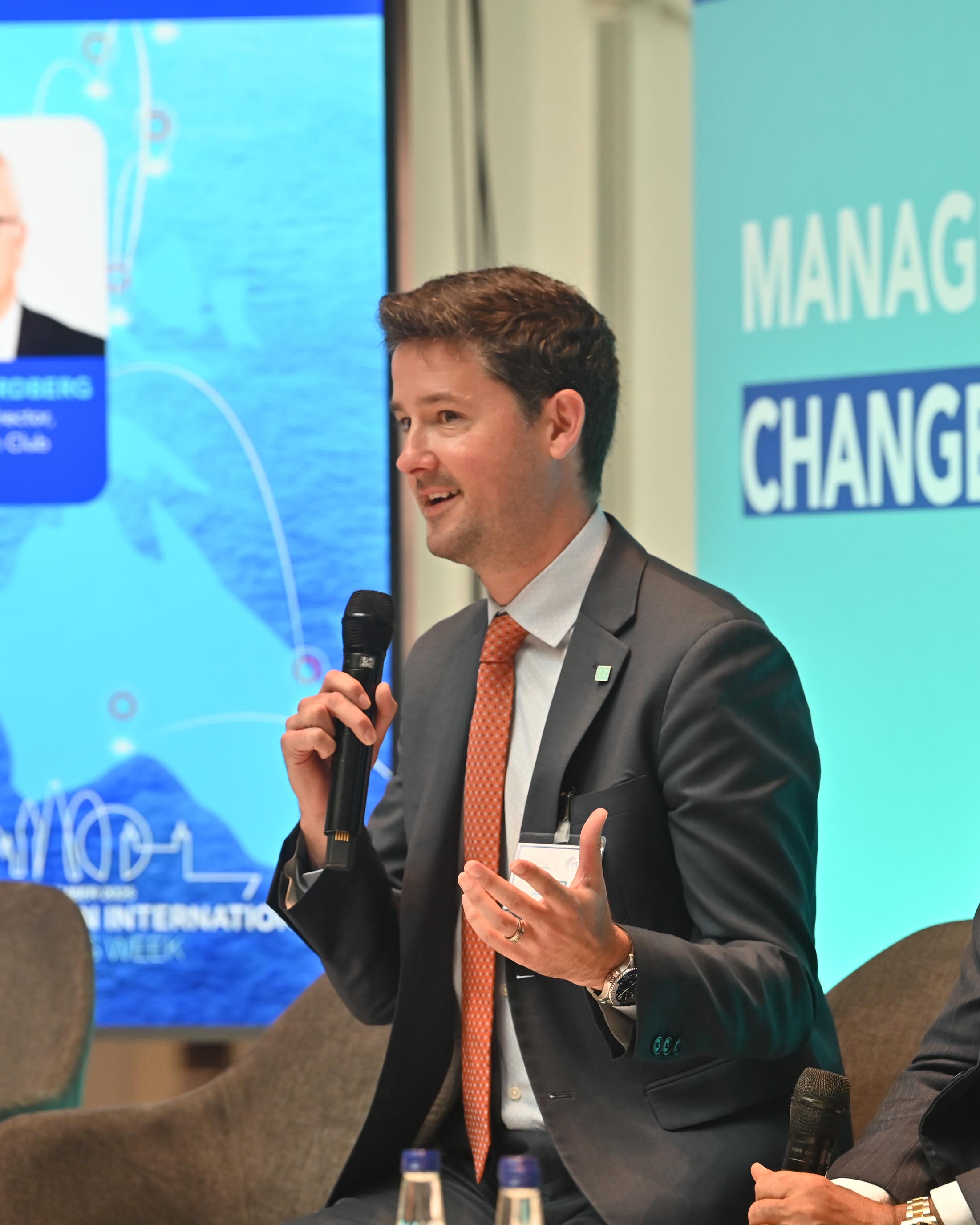
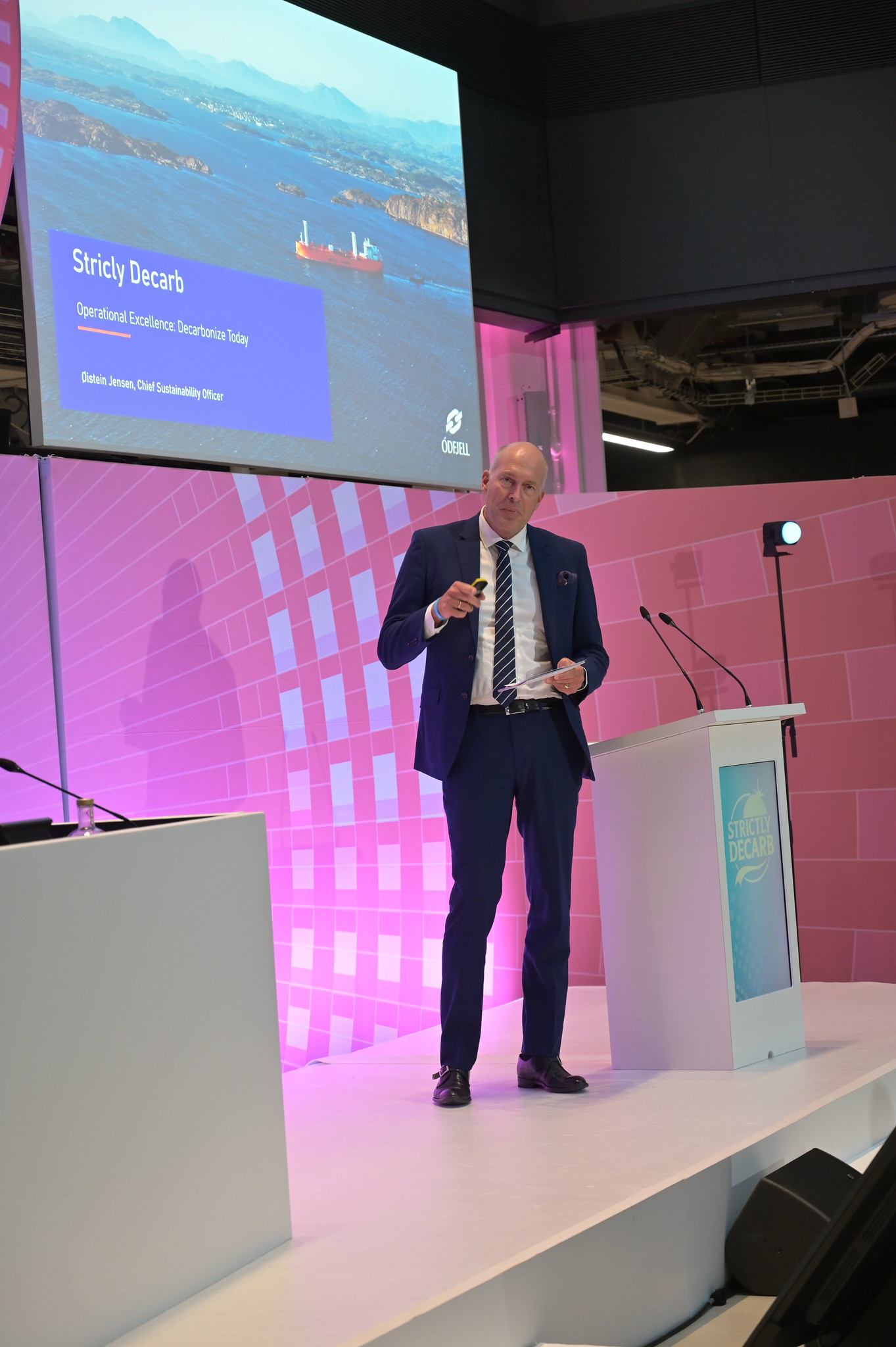

Better sensors, better real-world data
Another hot LISW25 topic? Vessel autonomy.
In general, the world is seeing a stronger push for autonomous vessels. This is driven by, for instance, the current shortage of seafarers. In addition, autonomous vessels come with military advantages as well, which today is quite relevant.
The UK is one of today's forces that is investing heavily in this area. Its First Sea Lord has stated the Royal Navy will be guided by the principle: “uncrewed wherever possible; crewed only where necessary”; envisioning frigates sailing with uncrewed escorts.
On a personal note, I don’t expect crewless commercial ships arriving in any port soon. This trending topic, however, does accelerate the development of advanced sensor systems. A fitting example is Orca.AI’s SeaPod, i.e. an automated lookout using cameras and AI to enhance visibility and situational awareness for the crew.
Step by step, yet without a doubt, digital systems and modern technology applied in maritime will gain sharper, more reliable data about the real world. Eventually, they will close the gap between demo and operational fit to sheer perfection.

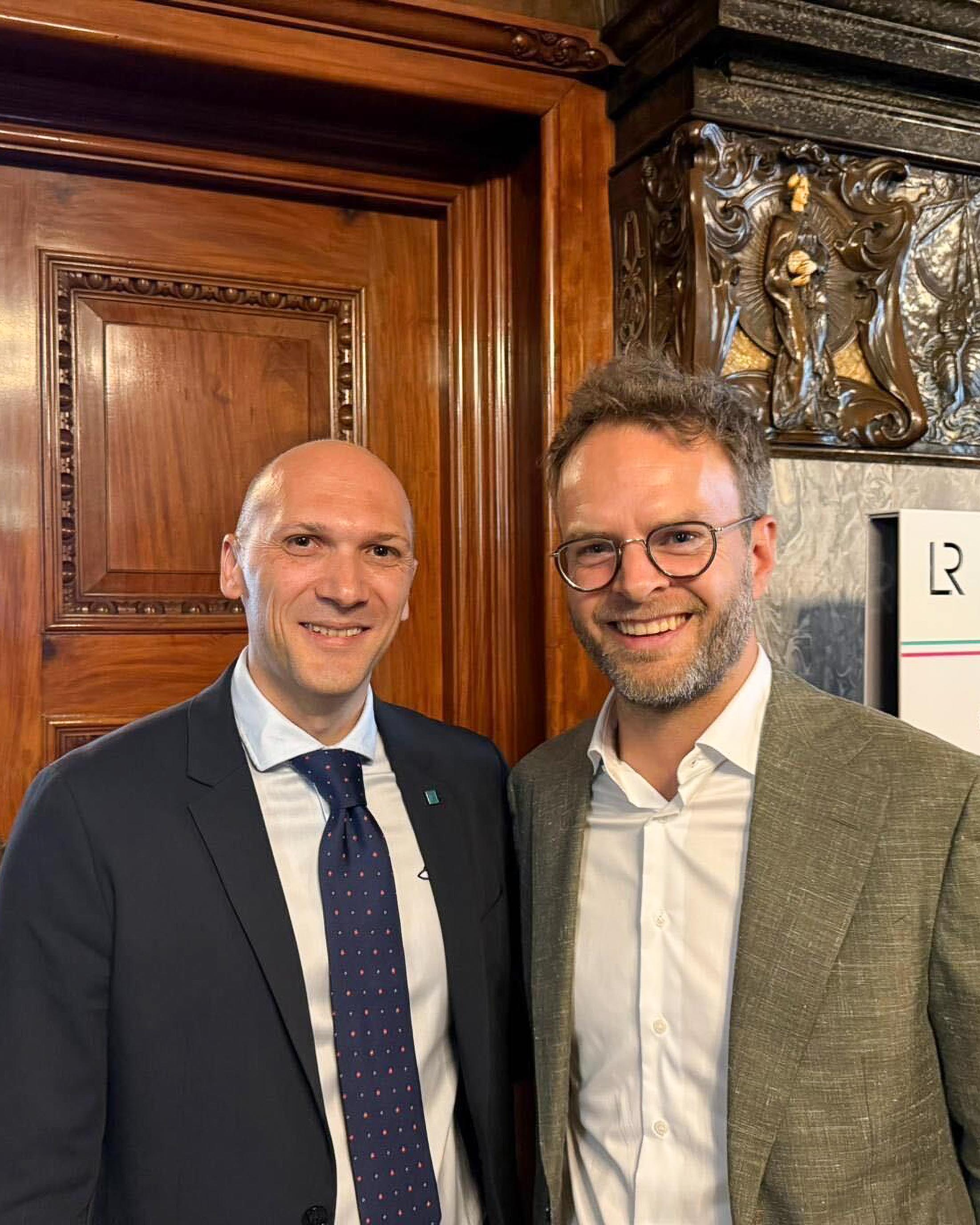

A broader use of maritime data
Finally, I noted that digital systems are increasingly becoming part of everyday workflows, where they long have been siloed systems only to be used by specialists.
During Lloyd’s Register Digital Transformation event, Bahri’s fleet manager talked about how digital tools are automating their reporting. Karrie Trauth, Shell’s EVP of Shipping & Maritime, highlighted the importance of digital tools to handle volatility, for resilience, during the head conference.
From our own experience as well, at Made, we observe a growing demand from our clients for digital tools that integrate seamlessly into their daily workflows, giving fast access to the right information for all kinds of users.
With context. With purpose. With trust.
At the end of the day, it is clear to me that more people need better access to sharper data. And that's exactly where Made comes in.



What it means
Decarbonization requires auditable data to comply with regulations and to optimize performance. Autonomy pushes for reliable sensors and real-world data. Meanwhile, a broader use and an increased adoption rate of digital tools ensure that maritime data is becoming embedded in all kinds of workflows. From ship to shore.
For me, all of these findings strongly suggest that we are only at the beginning of what is potentially one hell of a ride. While the use of digital tools and data in maritime was already gaining momentum, the drivers outlined above will accelerate it even further.
Memory lane
While I was writing down my findings on the Eurostar back to Antwerp, I could not stop thinking about a project we did 6 years ago. Back then, we worked on a custom fleet platform for CMB.Tech to leverage high-frequency sensor data for automated reporting, weather routing and more.
True innovation, because the market did not offer what was needed at the time. Today, many of those capabilities are available off the shelf. We will definitely see the same kind of fast and trustworthy maritime innovation in the next few years.
Master the sea
To wrap up: the capabilities and the adoption of all things digital in maritime are accelerating. The industry is absolutely maturing in that respect. Given the competitiveness of maritime, this means proper use of (your) data today is key for having a competitive edge in the next few years to come.
At Made, that is what we do for maritime businesses: we make data travel across ecosystems and bring it to good use, so you can master the sea.


